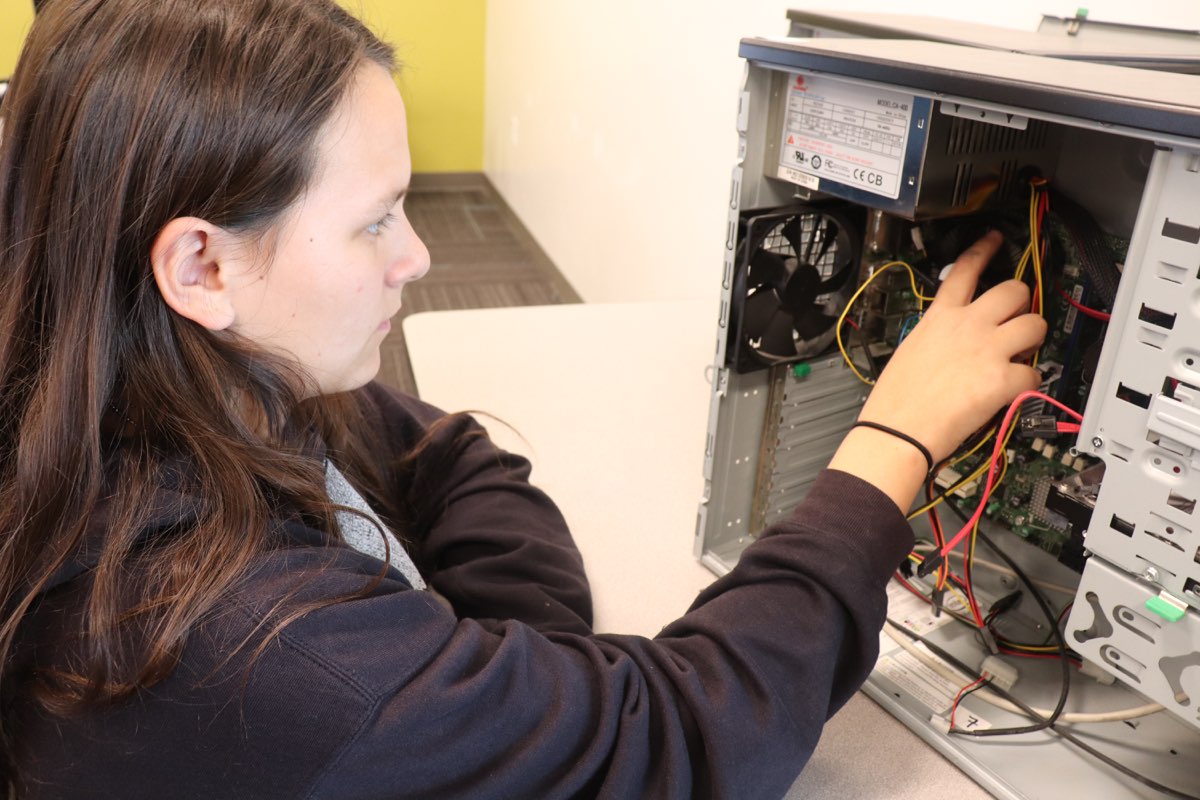Our Guiding Principles
The AAI Difference
AAI strives to develop an innovative mindset in our faculty, staff, and students through embracing change, facing failures, thinking “big picture,” exploring creativity, challenging potential, and courageously innovating. The vision of the American Academy of Innovation is to empower the mind to improve the world.
We know, through mountains of research, that individuals thrive when learning and work become individual and deeply personal. Personalized growth and learning occur most frequently when we make meaningful cognitive connections that inspire our own journeys. We strive to make those connections through these guiding principles which include Individualization, Competency-Based Learning, Project-Based Learning and Experiential Learning.
Individualization
Most schools throughout the United States are standardized, taking a one-size-fits-all approach to learning. This "design-to-the-average" model in education often ignores the individual needs of students and in many cases creates a passive learning experience. The American Academy of Innovation is leading other public schools by introducing a learning model where individualization is embraced and students take an active role in their education.
Competency-Based Learning
Competency-Based Education (CBE) is a philosophy that allows students to advance as they demonstrate an understanding and mastery of the course. Rather than relying solely on time, place, or pace, CBE focuses on ability, capacity, and potential. The American Academy of Innovation is proud to be the first public charter school in Utah to implement CBE. This was largely made possible through a grant provided by the Utah State Board of Education (USBE).
AAI awards credit toward graduation in 0.25 increments as students demonstrate competence. Learning is not limited to quarter, semester, or year. To learn more, view Portrait of a Graduate and the USBE’s recently developed vision, Competency-Based Education Framework Utah.
Project-Based Learning
Project-Based Learning (PBL) is a teaching and learning strategy in which students learn by actively engaging in real-world and personally meaningful projects. Throughout the year, the American Academy of Innovation provides training and coaching to teachers in the implementation of PBL in all content areas. AAI teachers incorporate projects into the classroom focused on students acquiring key knowledge, understanding, and success skills.
To learn more about Project-Based Learning, visit PBLWorks (Buck Institute for Education).

Experiential Learning
Experiential Learning is simply learning by experience. This hands-on approach requires reflection and moves away from the conventional manner where a teacher stands in front of the classroom and lectures students on a particular subject. Experiential education walks through authentic, “hands-on” activities and asks critical questions along the way to encourage interdisciplinary crossover and application. To learn more about experiential learning, visit the Aurora Institute.
AAI's guiding principles drive the development of crucial methodologies, including Grade-level Projects, Workshops, Immersions, Capstone Projects, Mentorship, and Counseling. Thanks to our teaching methodologies, students have the opportunity to engage in a variety of immersive, hands-on experiences that facilitate natural curiosity and drive discovery.
